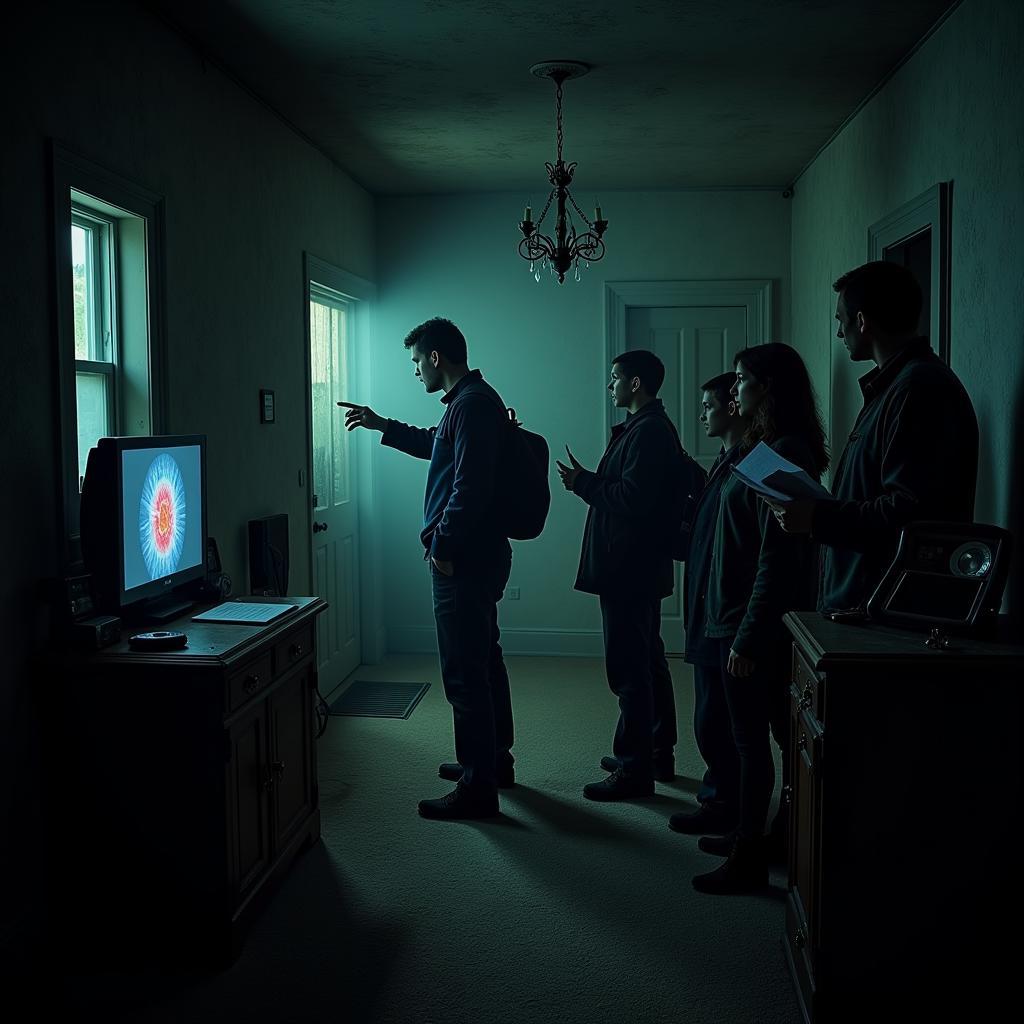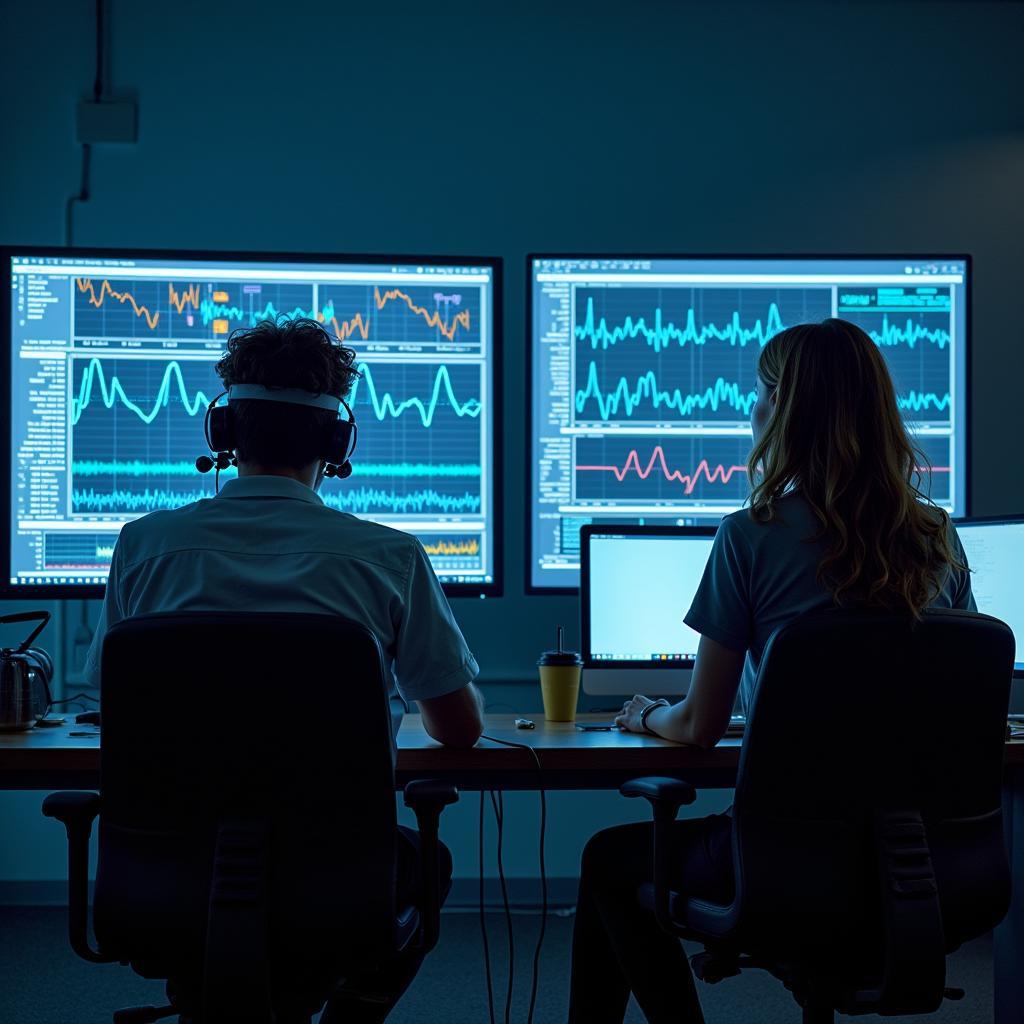Empirical research plays a crucial role in investigating paranormal phenomena. It allows us to move beyond anecdotal evidence and explore these mysterious occurrences through systematic observation and experimentation. By applying scientific principles and rigorous methodologies, we can strive to gain a deeper understanding of the unexplained. This article will delve into Empirical Research Examples, demonstrating how this approach can be applied to the study of the paranormal.
examples of empirical research
What is Empirical Research and Why is it Important in Paranormal Investigations?
Empirical research relies on verifiable evidence gathered through direct observation or experience. It’s a cornerstone of the scientific method, enabling researchers to test hypotheses and draw conclusions based on data. In the context of paranormal research, empirical research examples can provide valuable insights into alleged hauntings, psychic abilities, and other unexplained phenomena. By collecting and analyzing data systematically, researchers can attempt to differentiate between genuine paranormal activity and other explanations, such as misinterpretations of sensory input, environmental factors, or psychological phenomena.
Examples of Empirical Research in Paranormal Studies
Empirical research in the paranormal can take various forms. For instance, a team investigating a reportedly haunted location might use EMF meters to measure electromagnetic fields, seeking anomalies that could correlate with reported paranormal experiences. Similarly, researchers studying psychic abilities might conduct controlled experiments to test the accuracy of precognitive or telepathic claims. These empirical research study examples provide a structured approach, allowing researchers to gather quantifiable data.
examples of empirical research papers
Investigating Hauntings with Empirical Methods
When investigating hauntings, researchers often employ a combination of methods. Temperature fluctuations, unusual sounds, and visual anomalies are documented and analyzed. Researchers might also use infrared cameras to detect variations in heat signatures, which some believe could indicate the presence of unseen entities. These empirical research examples help to build a comprehensive picture of the phenomena.
 Empirical research of a haunted house
Empirical research of a haunted house
Exploring Psychic Abilities Through Controlled Experiments
In studying psychic abilities, controlled experiments are essential. For example, a researcher might ask a purported psychic to identify hidden objects or predict the outcome of a random event, carefully controlling the experimental conditions to minimize the possibility of fraud or bias. Gathering statistically significant data through repeated trials is key to determining whether the results deviate from chance expectations. This approach allows for more objective analysis of the phenomena being studied.
 Controlled experiment to test psychic abilities
Controlled experiment to test psychic abilities
How Can I Learn More about Empirical Research in the Paranormal?
Many resources are available for those interested in learning more about empirical research and its application to the paranormal. Academic journals, books, and online platforms dedicated to parapsychology offer valuable insights into the latest research findings and methodologies.
What are the limitations of empirical research in this field?
One of the major challenges in applying empirical research to the paranormal is the elusive nature of the phenomena themselves. Reproducibility is often a significant issue, as paranormal experiences tend to be subjective and unpredictable. However, through rigorous methodology and careful data analysis, researchers can continue to explore these enigmatic occurrences and strive to uncover the truth behind them.
Conclusion
Empirical research provides a valuable framework for investigating the paranormal, allowing researchers to approach these mysterious phenomena with a degree of objectivity. While challenges remain, the application of scientific principles and rigorous methodologies holds the potential to shed light on the unexplained. By continuing to explore empirical research examples in the paranormal field, we can strive to gain a deeper understanding of these enigmatic occurrences.
FAQs
- What is the difference between empirical research and anecdotal evidence? Empirical research relies on verifiable data, while anecdotal evidence is based on personal stories and testimonials.
- Can empirical research prove the existence of ghosts? While empirical research can investigate reported paranormal activity, definitive proof of ghosts remains elusive.
- What are some common tools used in empirical paranormal research? EMF meters, thermal cameras, audio recorders, and motion sensors are often used.
- How can I contribute to empirical research in the paranormal? Joining a local paranormal investigation group or supporting research organizations are ways to contribute.
- Where can I find reliable information about Paranormal Research? Academic journals, books, and reputable online resources focused on parapsychology can provide reliable information.
Need help with your own paranormal investigation? Contact us! Phone: 0904826292, Email: research@gmail.com Or visit us at: No. 31, Alley 142/7, P. Phú Viên, Bồ Đề, Long Biên, Hà Nội, Việt Nam. We have a 24/7 customer service team.